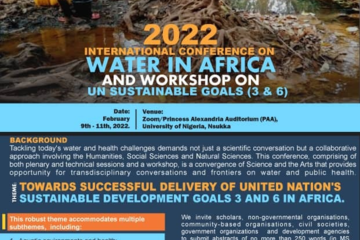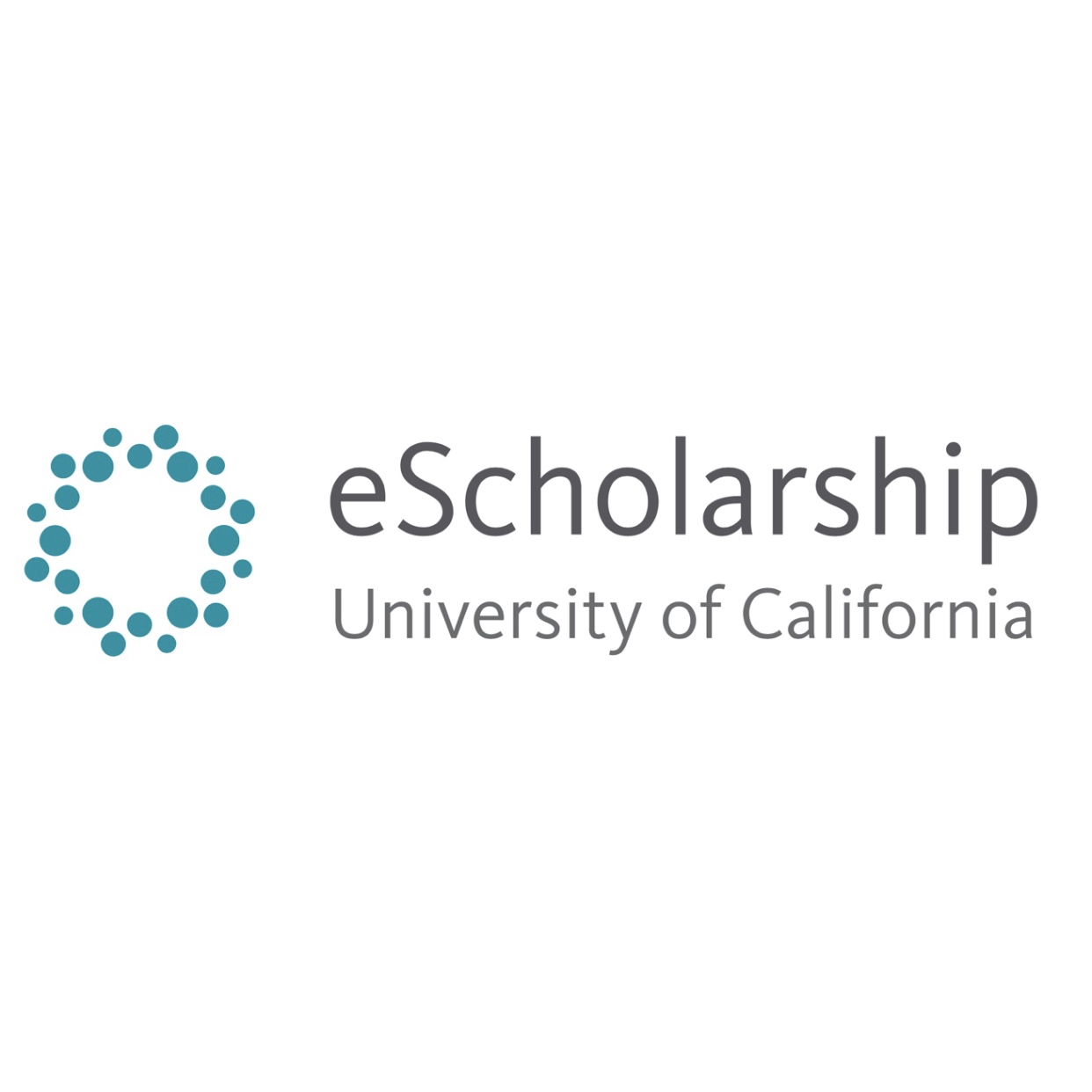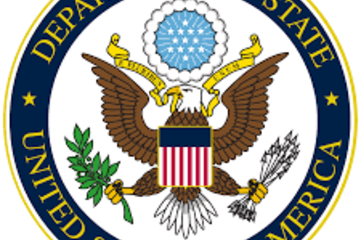Feed
-
2022 International Conference on Water in Africa2022 International Conference on Water in Africa and Workshop on UN Sustainable Goals (3 & 6) Date: February 9th - 11th, 2022. Venue: Zoom/Princess Alexandria Auditorium (PAA), University of Nigeria, Nsukka Background Tackling today’s water and health challenges demands not just a scientific conversation but a collaborative approach involving the Humanities, Social Sciences and Natural Sciences. This conference, comprising of both plenary and technical sessions and a workshop, is a convergence of Science and the Arts that provides opportunity for transdisciplinary conversations and frontiers on water and public health. Theme: Towards Successful Delivery of United Nation’s Sustainable Development Goals 3 and 6 in Africa. This robust theme accommodates multiple subthemes, including: Aquatic environments and health: Water, sanitation and hygiene (WASH) Water treatment and wastewater treatment Water and theatre for development (TfD) Water education, literacy and awareness Water management and governance Water, agriculture and food security Water, women and gender concerns Water security and climate change Water risk and resilience assessments Hydrogeology, hydro-informatics and modelling Bioactive agents from aquatic ecosystems Bioenergy and biochemicals from wastewater Abstract submission We invite scholars, non-governmental organisations, community-based organisations, civil societies, government organizations and development agencies to submit abstracts of no more than 250 words (in MS Word, single-line spacing and Time New Roman font 12) to the conference email (waterconference@unn.edu.ng). The deadline for abstract submission is January 21,22 Contact the organizers via email (waterconference@unn.edu.ng)By: Vincent ChigorThursday, Jan 6, 2022WATER, ENERGY, AND THE ENVIRONMENT

-
Ufahamu: A Journal of African Studies, Call for SubmissionsCALL FOR PAPERS CLOSES FEBRUARY 15TH SEND SUBMISSIONS TO UFAHAMU@GMAIL.COM CALL FOR PAPERS FOR UFAHAMU DUE FEB. 15, 2022 The editors of Ufahamu: A Journal of African Studies are currently accepting submissions for Volume 43, Issue 2. In honor of the journal’s recent 50th anniversary of publication, this special retrospective issue will include republished essays from the back catalog alongside new submissions including, but not limited to: Essays Poems Book reviews Visual arts This call gives special consideration to those submissions which directly engage with the themes covered in the first decades of Ufahamu’s publication. Examples include direct engagement with a previously published article in Ufahamu, a paper written through citations of past Ufahamu writings, or any submission addressing themes such as: Anti-colonialism National liberation Consciousness Pan-Africanism Black Marxisms Diaspora Activist-intellectualism and much more! The editors are also soliciting articles concerning contemporary political issues in Africa and the diaspora in the spirit of Ufahamu’s original activist-academic ethos. Ufahamu’s full catalog is freely available and digitized at https://escholarship.org/uc/international_asc_ufahamu/1/1 For more information about Ufahamu, please visit https://international.ucla.edu/asc/ufahamu ---------------- Information forwarded by the UCLA African Studies Center – www.international.ucla.edu/africaBy: Raquel AcostaWednesday, Jan 5, 2022CULTURE AND SOCIETY+1
 No Preview Available
No Preview Available -
International Feminist Journal of Politics-Asian Center for Women’s Studies Ewha Womans UniversityWe invite participants to this multi-location hybrid conference, ‘Remapping the feminist global’ co-convened by International Feminist Journal of Politics and Asian Center for Women’s Studies, Ewha Womans University.By: Raquel AcostaWednesday, Jan 5, 2022CULTURE AND SOCIETY
-
Support for Summer Akan, Swahili, Wolof StudyIndiana University is accepting applications for fellowships and scholarships to support study in its intensive summer programs in Akan, Swahili or Wolof in summer 2022. Courses are offered in an in-person/online hybrid format or a fully online format. Participants may also join a 1-credit African Studies course in English: "Military Engagement and Global Power Competition in Africa." All participants pay in-state tuition and earn 6-10 credits. Several scholarship and fellowship programs are available. Funding and priority admission application deadline is January 29, 2022. See http://languageworkshop.indiana.edu for course-by-course details and application forms. Questions? Write to us at languageworkshop@indiana.edu Read more or replyBy: Raquel AcostaFriday, Dec 17, 2021EDUCATION
 No Preview Available
No Preview Available -
U.S. Embassy Bamako Public Diplomacy Annual Program StatementPAS Bamako invites proposals for projects that strengthen ties between the United States and Mali by promoting bilateral cooperation and highlighting shared values and shared interests. All programs must advance one of the key priorities listed below and must promote an element of American culture or have a connection with American expert/s, organization/s, or institution/s in a specific field that will promote increased ties between the United States and Mali and foster understanding of U.S. policies and perspectives. The PAS Small Grants program is NOT a vehicle to fund development projects, nor can these grants be used to support for-profit entities. Examples of PAS Small Grants Program projects include, but are not limited to: Artistic and cultural workshops, joint performances, and exhibitions Academic and professional lectures, seminars, and speaker programs Cultural heritage conservation and preservation programs Civic engagement and social activism programs Key Priority Areas and Audiences The purpose of projects funded under the annual program statement is to strengthen ties between Americans and Malians as we work together to make progress toward the goals outlined below. Strengthening independent media and fighting disinformation through media literacy, training and other engagement; Reinforcing existing Sister City relationships or other relationships between U.S. and Malian institutions (e.g. universities or museums) Ensuring participation of citizens, especially women and youth, in the democratic process; Fostering economic growth and entrepreneurship; Advancing anti-corruption efforts and promoting transparency and good governance; Promoting inclusive social development, particularly by empowering women and girls; Engaging underserved populations, including persons with disabilities, through art, sports, culture and other creative programs; Promoting tolerance and peace; Strengthening community resilience to extremism; and Promoting English language study and acquisition. For more information or to apply visit grants.govBy: Derek TobiasThursday, Dec 16, 2021CULTURE AND SOCIETY

-
U.S. Mission in Uganda Public Affairs Annual Program StatementThe U.S. Mission in Uganda’s Public Affairs Office is pleased to announce that funding is available through the Public Diplomacy Grant Program for projects ranging in value from $5,000 to $40,000. Projects for greater values will be considered on a case-by-case basis. Grants are intended for committed and organized civil-society organizations, local representatives of civil society, think tanks, non-governmental organizations, cultural institutions, and academic institutions. Awards to individuals will also be considered on a case-by-case basis. All grantees must have a non-profit status. Notice: For Fiscal Year 2022 all proposals submitted in response to this Annual Program Statement must include a contingency plan describing how the proposed activity would be implemented in the event that COVID-19 related health restrictions are in place during the anticipated period of performance. Objectives and Project Outcomes: The objectives of the Public Diplomacy Grant Program are to promote positive relations between the people of Uganda and the United States; reinforce shared values; and connect high potential Ugandan youth and young professionals (aged 16 to 35) as well as established professional leaders to the American people through projects that: Help Ugandan youth aged 16 – 35, especially young women, explore and discover their potential through innovative science, technology, engineering, and math (STEM) programs, as well as entrepreneurship programs. Encourage Ugandan youth aged 16 – 35 to participate in civic life through social entrepreneurship, volunteerism, and community engagement. Strengthen understanding of U.S. values and institutions; highlight U.S. culture, including American Studies; and support diversity, inclusion, and equality. Utilize the power of the arts to promote positive self-expression, social change, and economic opportunity among Ugandan youth aged 16 – 35. Equip emerging community leaders (e.g., sports coaches, arts instructors, and cultural professionals) aged 22 – 35 with the skills and knowledge necessary to grow their organizations or to enhance their engagement with youth audiences. Promote the development and application of new technologies and innovative solutions to economic, environmental, and social challenges. Projects could connect U.S. technology or public policy experts with Ugandan peers or foster the application of American technology and innovations to address challenges in Ugandan communities. Support civil society organizations (CSOs) in developing a vibrant and prosperous democratic society through programs that strengthen NGO management, enhance the skills of early to mid-career NGO/CSO professionals, strengthen networks between NGO/CSO professionals in the United States and Uganda, or demonstrate to the public the positive role CSOs play in advancing a prosperous, healthy, and informed society. U.S. Content In order to be eligible for funding consideration, proposals must demonstrate significant U.S. content. U.S. content can include, for example, the substantial participation of U.S. experts or alumni of U.S. government exchange programs, partnership with U.S. organizations or educational institutions, the involvement of U.S. companies present in Uganda, the application or adaptation of U.S. models and best practices, or learning materials related to American history, society, culture, government, or institutions. Initiatives that promote sustained cooperation between the people of the United States and Uganda even after program funding has concluded are encouraged. Proposals without significant U.S. content will not be considered for funding. Activities that are typically funded include, but are not limited to: Programs that reinforce and amplify lessons learned by alumni of State Department-funded exchange programs (both American and Ugandan alumni); Youth engagement and leadership programs; Workshops, seminars, trainings, and master classes on American themes or issues of mutual interest mentioned in the above goals of the Program; Programs to empower young women; Radio, television, and social media training and programming in support of the above program objectives; Programs designed as a partnership between a Ugandan and U.S. organization; Initiatives in support of the above program objectives that make creative use of the Mission’s American Center in Kampala or Nile Explorer bus, a mobile classroom that provides extracurricular learning opportunities in STEM and other subjects through visits to underserved communities across Uganda. Activities that are not typically funded include, but are not limited to: Social welfare, community development, or vocational skilling projects, Fees and travel costs to attend conferences in the United States, Ongoing salary costs and office equipment, Paying to complete activities begun with other funds, Projects that are inherently political in nature or that contain the appearance of partisanship/support to individual or single party electoral campaigns, Political party activities, Projects that support specific religious activities, Trade activities; fundraising campaigns; commercial projects; scientific research; construction projects; or projects whose primary aim is the institutional development of the organization itself. For more information or to apply, please visit grants.govBy: Derek TobiasThursday, Dec 9, 2021YOUTH EMPOWERMENT+1

-
Call For Papers: 8th International Conference on Higher Education AdvancesWe are pleased to announce the Eighth International Conference on Higher Education Advances (HEAd’22), as a hybrid conference (in-person and virtual conference, simultaneously). Every year, HEAd brings together around 250 participants from more than 50 countries to exchange ideas, experiences and research results related to the preparation of students, teaching/learning methodologies and the organization of educational systems. The HEAd'22 conference will be held on June 14-17, 2022 on the Faculty of Business Administration and Management of the Universitat Politècnica de València (UPV), which has been recently ranked as the best technical university in Spain by the Academic Ranking of World Universities (ARWU) 2021. The program committee encourages the submission of articles that communicate applied and empirical findings of interest to higher education professionals. Topics of interest include, but are not limited to, the following topic areas: Innovative materials and new tools for teaching Educational technology (e.g., virtual labs, e-learning) Evaluation and assessment of student learning Emerging technologies in learning (e.g., MOOC, OER, gamification) Scientific and research education Experiences outside the classroom (e.g., practicums, mobility) New teaching/learning theories and models Globalization in education and education reforms Education economics Teaching and learning experiences Entrepreneurship and learning for employment Education accreditation, quality and assessment Competency-based learning and skill assessment Important Dates Submission deadline: February 4, 2022Acceptance notification: April 6, 2022Camera ready due: April 25, 2022Conference dates: June 14-17, 2022 Publications All accepted papers will appear in the conference proceedings with a DOI and ISBN number. They will be published in open access by UPV Press and submitted to be indexed in major international bibliographic databases. Previous editions are indexed in Scopus and the Thomson-Reuters Conference Proceedings Citation Index - Web of Science Core Collection (former ISI Proceedings). Awards The Program Committee will select the winners for the Best Paper and Best Student Paper awards. To be eligible for the best student paper award, the presenting author of the paper must be a full-time student. Submission guidelines Authors from all over the world are invited to submit original and unpublished papers, which are not under review in any other conference or journal. All papers will be peer reviewed by the program committee based on their originality, significance, methodological soundness, and clarity of exposition. Submitted papers must be written in English and should be in PDF format. They must follow the instructions in the template file, available in Microsoft Word format at: http://www.headconf.org/template.docx Paper length must be between 4 and 8 pages, incorporating all text, references, figures and tables. Submissions imply the willingness of at least one author to register, attend the conference, and present the paper. HEAd'22 is using the OCS platform of UPV Press to manage the submissions. This platform provides you with a submissions homepage where you can register your paper submission and make appropriate changes. The submission website is: http://www.headconf.org/submission-instructions/ The organizing committee looks forward to welcoming you all to a fruitful conference with open discussions and important networking to promote high quality education.By: Raquel AcostaMonday, Dec 6, 2021EDUCATION
No Preview Available

Leave a comment